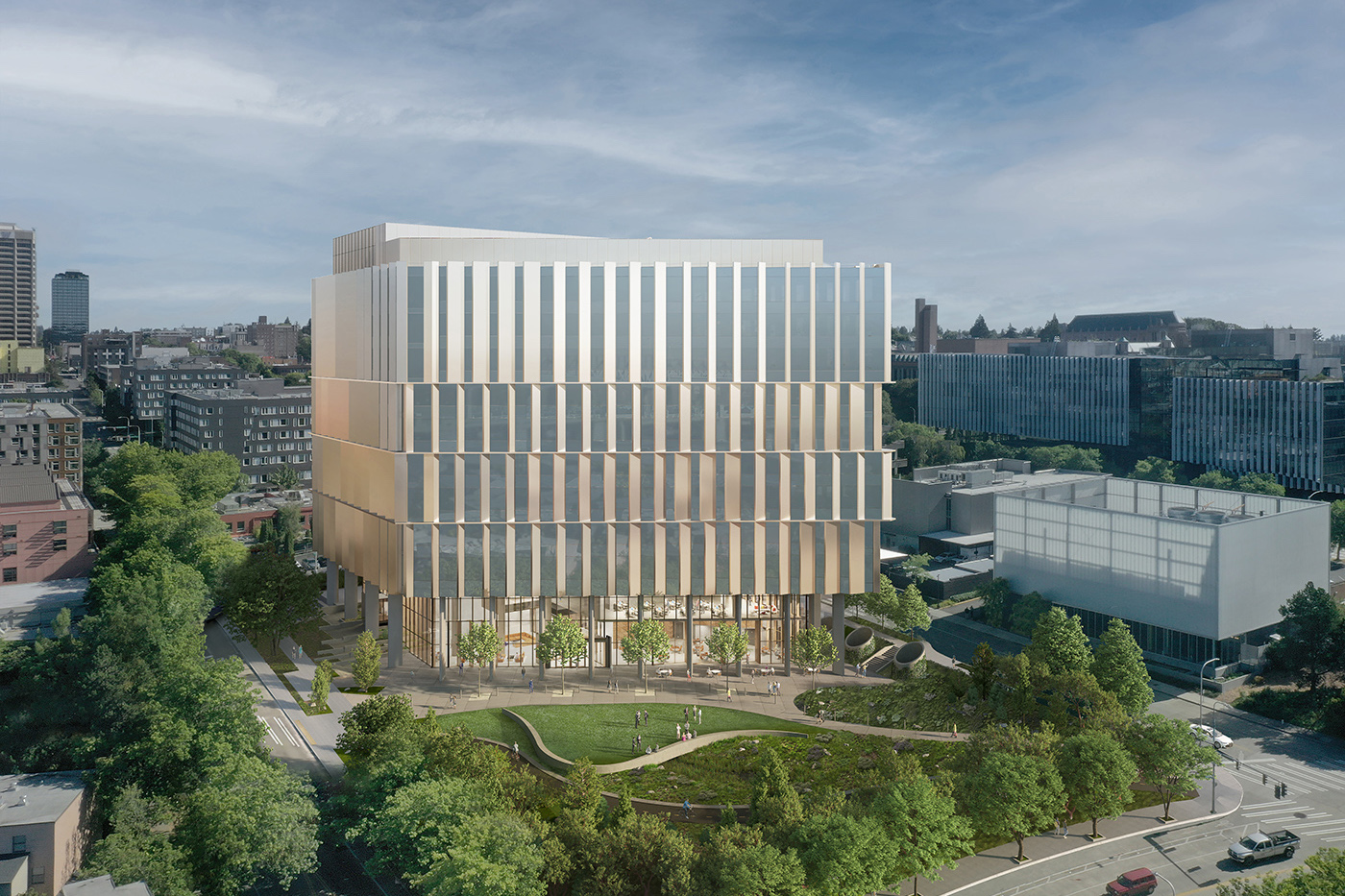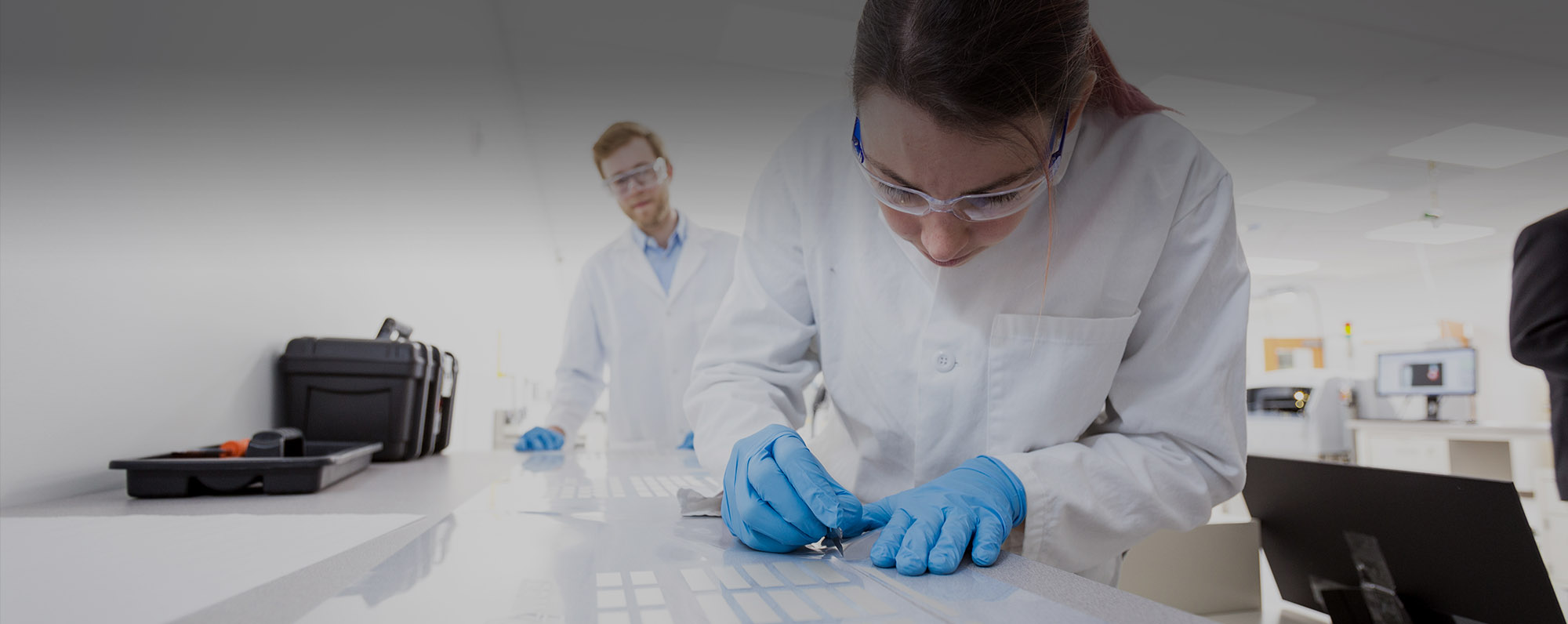
January 4, 2024
The University of Washington this year expects to break ground on a new building that will anchor an ambitious, innovation-focused redevelopment called Portage Bay Crossing. The project will cover 69 acres of the southwest portion of the Seattle campus, revitalizing and unifying an area of buildings that officials called old and underutilized.
UW leaders recently shared the name of the inaugural structure, which they’re calling Brightwork — a nautical term for the varnished wood and exterior metal on boats, as well as an allusion to the quality of research and entrepreneurship that hopefully takes place in the facility.
“The intellectual work that will occur inside these buildings, and inside this space, we hope will solve some of the nation’s and the world’s biggest problems,” said Randy Hodgins, UW vice president for external affairs.
The university’s vision is to transform the area into a walkable urban hub that incorporates buildings for academic research across disciplines; is home to startups and companies; provides housing; and attracts retail shops and restaurants that include diverse owners. The project will have features acknowledging the Coast Salish people and cultures, as well as other Pacific Northwest tribes.
The effort has been more than a decade in the works, and aspires for something different than the largely commercial neighborhood occupied by Amazon and other tech and biotech ventures in the South Lake Union area, just across the lake from the UW.
“We’re a public university. We’re not a private, profit-making company,” Hodgins said. And while there’s nothing wrong with commercial ventures, he added, “we have an obligation to embrace a lot of different kinds of partners.”
The UW is working with Wexford Science + Technology on the project. Baltimore-based Wexford has partnered with academic and research institutions across the U.S. to develop what it calls “knowledge communities.” The UW project is its 17th such effort over two decades.
There are 19 building sites within Portage Bay Crossing, which is roughly bordered by Lake Union, 15th Ave. N.E., N.E. 41st St., and Eastlake Ave. N.E., with a narrower band extending west past Eastlake. Portage Bay Crossing could ultimately include 3 million square feet of new buildings. The overall project includes a plan to expand a lakeside green space, adding to an existing shoreline park on Portage Bay, razing at least two research buildings and a parking lot, and constructing a waterfront trail. The development would create a bike-and-pedestrian friendly corridor between the lake and the popular Burke-Gilman Trail to its north.
Brightwork will be an 11-story structure with 345,000 square feet of leasable space located at Brooklyn Ave. N.E. and N.E. 40th St. The UW will rent up to 130,000 square feet in Brightwork for research efforts including the Washington Clean Energy Testbeds, the Institute for Protein Design and the Brotman Baty Institute for Precision Medicine. The building will include conference and event spaces, and room for a restaurant and cafe.
The project is aiming for LEED gold certification and its sustainability attributes include photovoltaic solar panels on the roof; an environmentally friendly “chilled beam” system for heating and cooling; a crenelated exterior that will help capture solar heat; and onsite stormwater treatment for rainwater runoff. The site also features landscaping to create a park space and will separate the Burke-Gilman cycling trail from pedestrian walkways.
The project’s progress has been slowed by a legal challenge from another developer who lost its bid for the building. Alexandria Real Estate Equities (ARE) first filed suit against the UW in 2021, alleging that the university’s process for selecting a developer was unfair. A judge ruled in favor of the UW in March, and an appeals court upheld the decision last month, according to the Puget Sound Business Journal, which reported that ARE plans to appeal to the state Supreme Court.
Despite the ongoing legal issues, the UW and Wexford remain hopeful they will be able to start construction in early 2024. Brightwork is expected to take roughly two years to build.
Thomas Osha, executive vice president for Wexford, said that the UW’s lauded research capabilities, the region’s tech expertise and strengths in clean energy and biotech, and the nearby mass transit made the partnership a great match. It’s an opportunity to bring the university into greater proximity with companies that can amplify its research and attracts new talent to the institution, he said. “It’s really a model that’s worked very well across our platform.”
Rocale Timmons, UW executive director of economic development, emphasized the university’s commitment to making sure the building and broader project include colleges in the arts and humanities, reaching beyond STEM programs.
Bringing together those diverse academic disciplines as well as individuals from companies, government agencies and nonprofits will be essential, UW officials said, to tackling the planet’s biggest challenges.
“We’re hoping that these spaces,” Hodgins said, “will take that creativity and that knowledge generation to a whole different level.”




